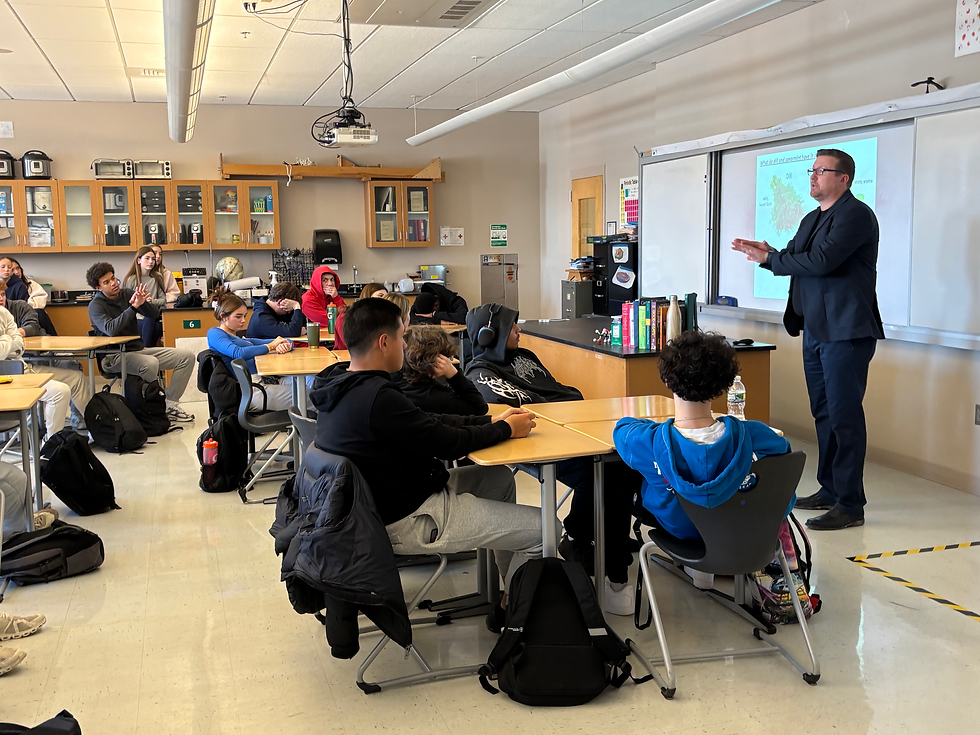News from Astronomy
- Jan 29, 2021
- 2 min read

Picture of the Orion Nebula taken by WHS Astronomy student
Earlier this month the WHS Astronomy class welcomed Mr. Paul Bierden (father of Max, '21) as a guest speaker via videoconference. Mr. Bierden is the president and CEO of Boston Micromachines Corporation, a company that designs and creates deformable mirrors used by major research telescopes around the world, along with other optical instruments used in other industries. Deformable mirrors are a key component of the adaptive optics systems that correct for atmospheric blurring and other thermal imperfections to achieve the highest resolutions possible. Mr. Bierden spoke to the class about the role adaptive optics is currently playing in the study of exoplanets (planets orbiting stars other than our Sun.) He explained to the class how adaptive optics systems provide telescopes with the resolutions required to study the starlight reflected off of exoplanets, allowing astronomers to determine the atmospheric compositions of these alien worlds. The astronomy class would like to thank Mr. Bierden for sharing his time and expertise with the class.
Astronomy students have also recently started using Slooh, a new-to-WHS service that allows them to remotely operate telescopes located in the Canary Islands and in Chile's Atacama Desert. With Slooh, students are able to schedule observations in advance, taking photographs of everything from planets to galaxies without having to stay up all night long. Slooh gets is name from the term astronomers use to describe the repositioning of a telescope ("slew") and the noises people make when they look at awe-inspiring images of the cosmos ("oooh!") The photograph here is of the Orion Nebula taken by a WHS Astronomy student using one of Slooh's telescopes in the Canary Islands:





Comments